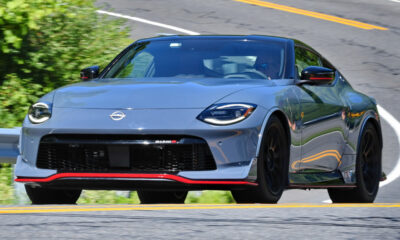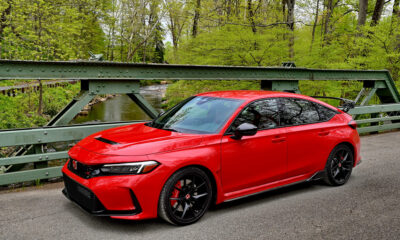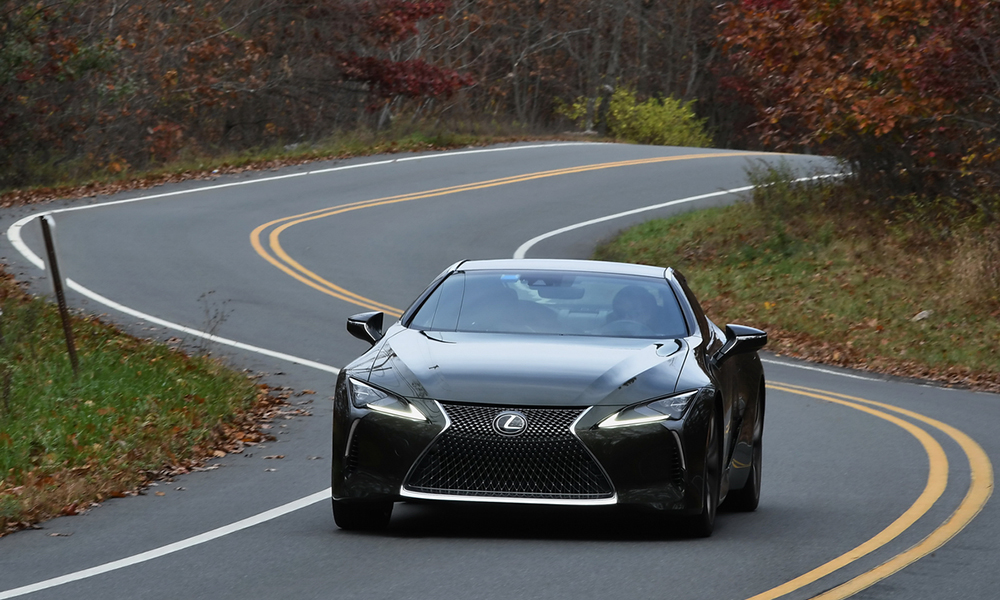
Photo: David Haueter
Lexus is a brand known more for luxury than sport but look deep enough in the model lineup and you’ll find some cars that cater to those who enjoy driving and not just being coddled.
Under the “Performance” tab on their website you’ll find the RC F and LC models.
The RC F is used as the basis for the RC F GT3 that the Vasser Sullivan team races in IMSA’s GT Daytona class, but the LC 500 is the flagship performance model when it comes to road cars.
There are three models in the LC lineup. The LC 500h is a hybrid that uses gas and electric motors to produce a combined 354hp, while the LC 500 coupe and convertible both rely on a 5-liter normally aspirated V8 that produces 471hp.
It’s the same engine used in the RC F, which for some reason makes 1hp more, but the LC 500 makes more torque, at 398 lb.-ft. vs. 395. 0-60mph time on the LC 500 is a quick 4.4 seconds.
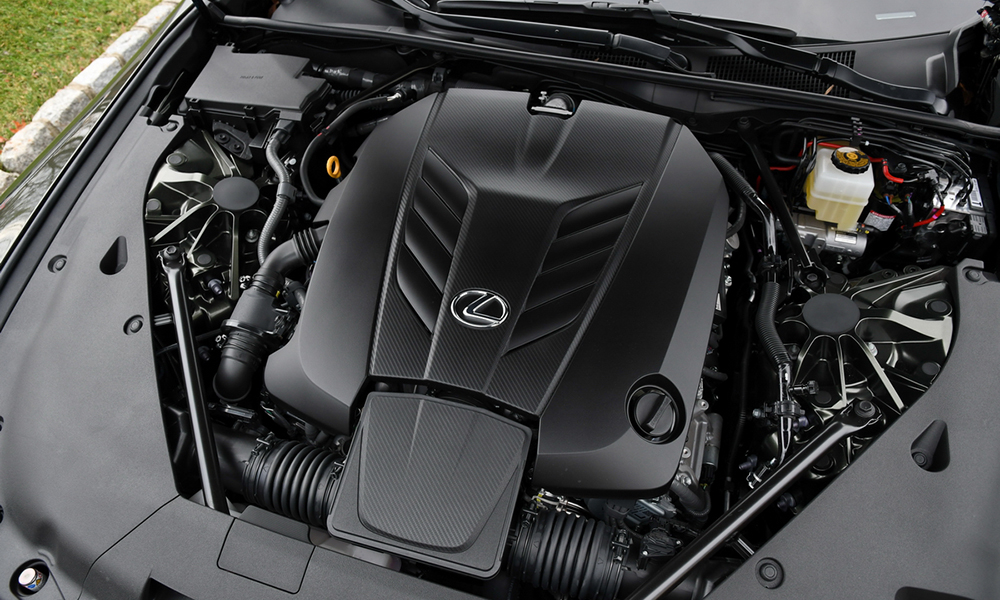
Photo: David Haueter
Having a normally aspirated V8 and rear-wheel drive sets the LC 500 apart in this era of turbocharged motors and all-wheel drive, and the car has the hardware to back up the V8.
For braking, it’s fitted with 6-piston monoblock calipers in the front with 15.7-inch two-piece vented rotors, along with 4-piston calipers in the rear with 14.1-inch vented rotors.
It has a multi-link suspension front and rear, and Lexus says the 10-speed automatic transmission (a manual is not available) has one of the fastest shift times of any conventional automatic, at 0.12 seconds.
The LC 500 I drove also had options that enhance the street presence of the car and improve performance.
Our test car had the $9,570 Dynamic Handling Package, which includes a carbon fiber roof and 21” staggered wheels, along with a limited slip diff, Active Rear Steering, a speed-activated rear wing and performance brake pads, among other things.
The car also wore a sticky set of Michelin Pilot Super Sport tires.
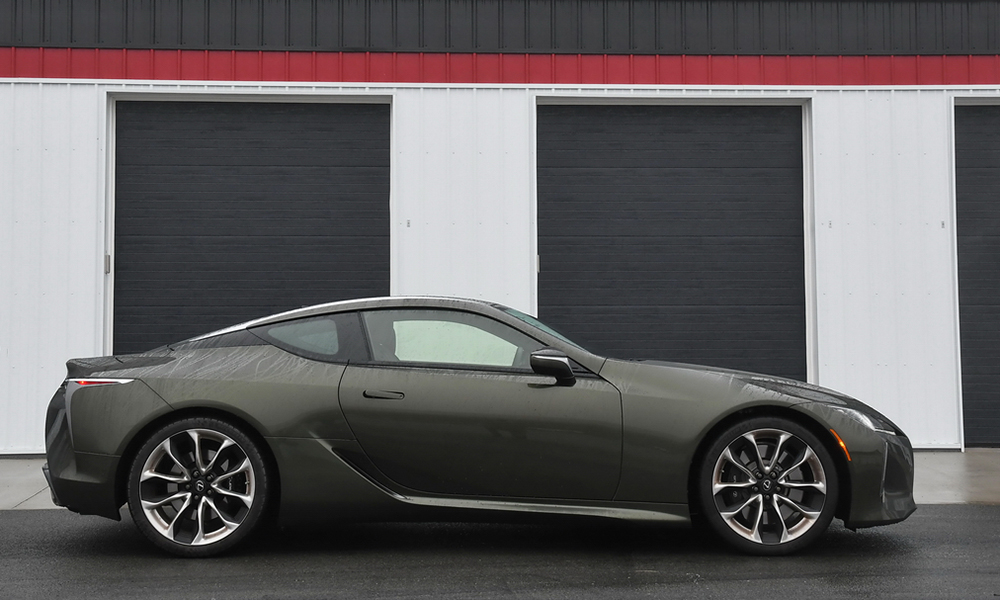
Photo: David Haueter
The LC 500 coupe is stunning to look at, with a wide stance, sensuous curves, and a low roofline. It really looks like a concept car and blends some traditional Lexus styling (like the front grill) with design cues from the LF A supercar from a decade ago.
While the RC F tends to blend in and is rather innocuous in appearance, the LC 500 is a real head turner.
Put simply, it’s a car that you’ll turn around and look at as you walk away.
Inside the cockpit, the LC 500 is a blend of old school features and modern design. For example, the analog clock next to the digital infotainment display seems out of place, and the shelf that runs along the length of the dash looks odd.
The mousepad for the infotainment display is very touchy and difficult to use and the dials that are stuck on the sides of the gauge cluster take some getting used to.
That being said, the seats are comfortable and supportive, and I liked the simplicity and layout of the gauges. Everything seems very well made and solid.
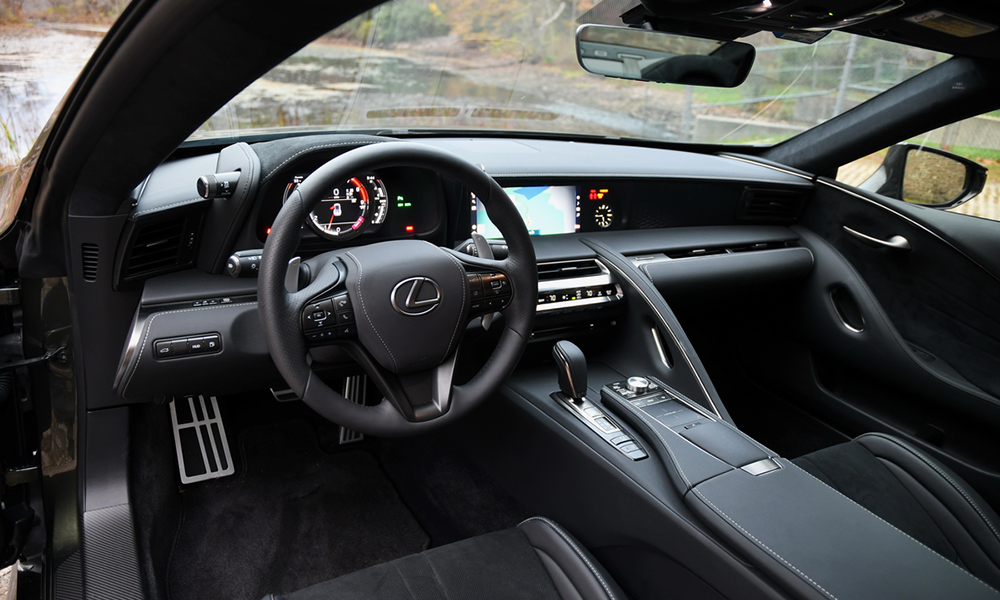
Photo: David Haueter
On the road, the LC 500 can be more biased toward luxury or sport, depending on your mood.
In Comfort mode the coupe has a more sedate ride and a compliant suspension that more traditional Lexus owners may expect, but stick it in Sport Plus mode and it changes its character to deliver performance that leans more toward sports coupe than luxury.
The suspension firms up, throttle response and steering are sharper, the shifts are faster, and the exhaust makes muscle-car noises.
The LC 500 proved up to the task on some of my favorite back roads. It is genuinely exciting to drive on a twisty stretch of road, with the diff and the sticky tires managing the horsepower and the V8 howling at high revs.
The ride and steering are well-controlled and precise, and the brakes work well to bring it down from high speeds for sharper corners. Lexus engineers have done a nice job of getting the suspension to manage the cars 4,340-lb. weight.
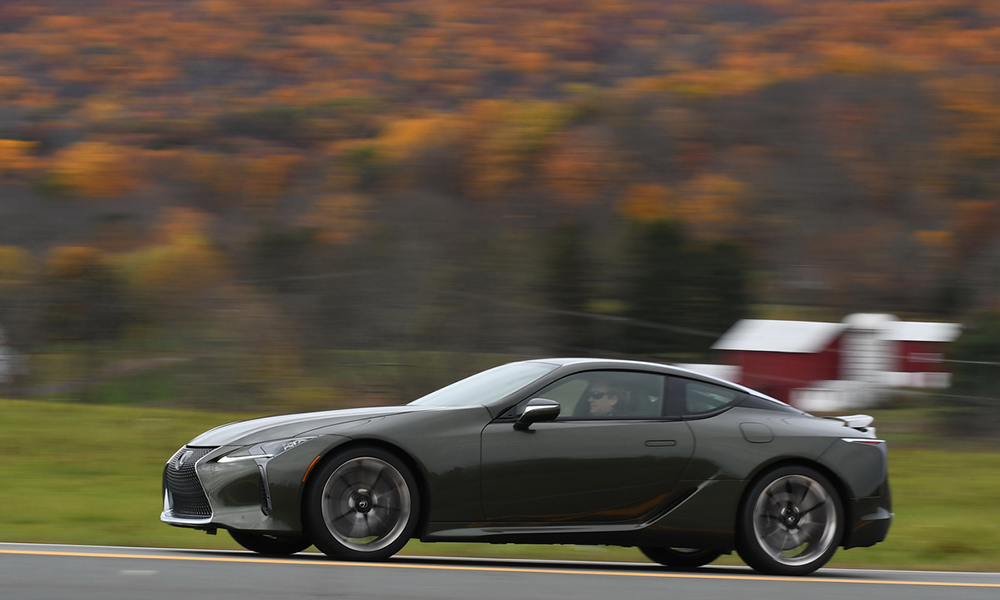
Photo: David Haueter
For those who want less of a taut and exuberant drive, Sport mode (a step down from Sport Plus), is a great setting for daily driving for those who want a nice blend of comfort and sport. I tended to drive the car in Sport mode most of the time, and then switched it to Comfort mode on the highway and Sport Plus for really tackling back roads.
Pricing starts at $93,050 for the LC 500 coupe, and the long list of options on our test car brought the price to $105,940, which is still well below the price of a BMW M8 (which starts at $133,000).
When it comes to competing with coupes from BMW M and Mercedes AMG, the LC 500 is more inclined toward someone who wants luxury just as much as sport, while the German cars lean more toward sport.
It’s not a car you’ll see showing up at a track day, but overall the LC 500 is a great blend of luxury and sport that is unique with its normally aspirated V8, which will soon be gone to history.
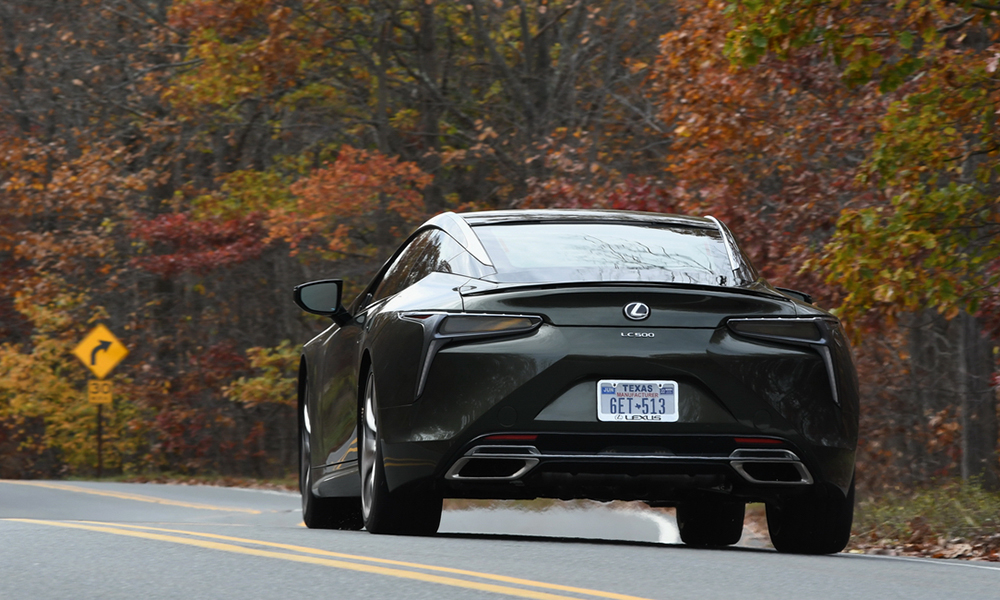
Photo: David Haueter





















